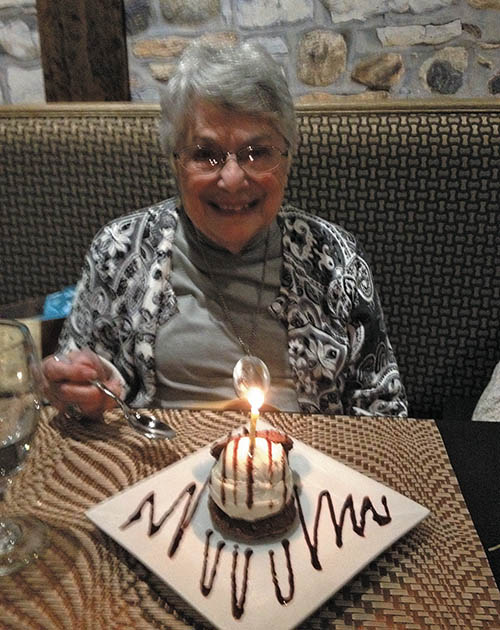
Nobody I know planned more meticulously for Pesach than Shirley Cohen, my mother-in-law.
Working backward from the date of the first seder, food would be purchased, entrees made, gefilte fish from scratch, wine and matzah ordered and the house and cars cleaned. There was no kvetching, no complaining. This is what she loved to do.
From the time in the mid-1970s when my wife Lisa and I started dating, all the way up to Shirley’s blessed role as great grandmother, Pesach brings her joy. When Shalom Chanania Tuvia (Nani), Shirley’s oldest grandchild, turned 4, he stood up on a dining room chair to say the Four Questions. I had my eye on Shirley the entire way. We didn’t need electricity that night, because she was beaming with pride.
Just a few weeks before this coming Pesach, Shirley lost her footing and fell in her home. She broke a bone in her neck, requiring emergency surgery, and is now on what we’re told will be a long road to recovery. She is 86 years old. Shirley has incredible strength and drive. She told us that she wanted to be home for Pesach, that she had work to do. Even in her infirm condition, she has shopping lists and chores racing through her mind. We can only be grateful, because her injury nearly took her from us.
Now Pesach is up in the air. We pray that Shirley can be with us, but because of the critical nature of her injury, we don’t think it’s possible. With her grandchildren and great-grandchildren in town, we have an urgency to bring them together with GG, the name the children call her.
So, while many of our friends and relatives are preparing for seders at home or who are observing the holiday at a resort this season, we too are planning.
We are looking into a way we can have our seders at the rehabilitation center.
I don’t know how it will all work. The walk is long. Perhaps we can stay at the center. Or by Pesach, it’s possible she could also be transferred to a subacute facility.
Our Mitzrayim is not Egypt nor Pharoah. Instead it’s a broken neck of the matriarch of our family, a woman who is absolutely the strength of our mishpacha.
Moshe Rabbeinu and our ancestors left Egypt and traversed a desert where they ate unleavened bread. We have to traverse several miles where we have to cut through neighborhoods and perhaps push or carry little children, not to mention the foods for a seder.
We’re not entirely sure what is in front of us. It is a difficult to plan to implement with the hours spent at the hospital. Our minds aren’t focusing on chametz or matzah right now.
But then, Shirley opened her eyes and asked us in a whisper, “How is the shopping going?”
And then she asked, “Will I be able to hear Nani say the Four Questions?”
Swallowing her tears, my wife said to her mother, “Yes, you will.”
Shirley then asked if we were sure about the mandelbread recipe. She made my wife say the recipe to her.
And not to be left off of the hook, she asked me how I was going to make her brisket. The questions pretty much didn’t stop.
We understood that in this room of a rehab center where we hear IV pumps beeping and see nurse call lights flashing, there are questions about Pesach. These are beautiful questions.
Dayenu.
May we all be together with Shirley this year and in years to come.
By Phil Jacobs










